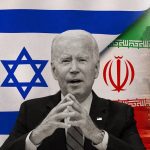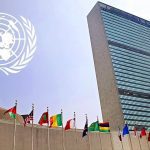Over the past two decades, the number of Muslim Brotherhood schools in Europe has been steadily increasing, provoking public and political disagreement across the board. Brotherhood schools have faced a barrage of criticism for their failure to promote social inclusion, ignoring contemporary educational standards, and spreading extremist ideologies. As varied as they are, Brotherhood schools in Europe differ widely in their size, structure, administration, academic outcome, religious objectives, and pedagogical impacts. However, no matter what differences these schools bring, they mostly share a common purpose – protecting Arab expatriate students from “secular” non-Islamic influences in the West and enabling them to maintain their identity.
European political systems bolster incursion of Brotherhood schools in Europe
The origin of these schools can be traced to either extremist organizations and movements or expatriate communities. In both cases, the establishment, legalizing, and regulating of these schools has been governed by the existing political system, state constitution, educational laws, church-state relation, inclusion policies, and minority rights, all of which naturally differ from one country to another. In Spain, for example, the constitution guarantees parents the right to a religious and moral education for their children that is consistent with their own beliefs, meaning it is the parents who decide on the type of religious education and teaching to be given to their children. The constitution makes it the duty of the state to take the appropriate measures to ensure the introduction of religious education in public schools. The Organic Law on Education (OLE), declared in 2006, established mandatory religious education without grades obtained in religion counting toward students’ overall grades or affecting getting scholarships or university grants.
In France, regulating the practice of Islam has left the country on the edge until the French Council of the Muslim Faith (CFCM) was established in 2003 with the aim of uniting different Islamic denominations, supervising building mosques, organizing conferences, forums, and religious ceremonies, and training and qualifying teachers and imams for Islamic education. On the whole, the French society tend to regard Islam as “anti-modern”, a belief that the French history and Crusades might have fostered portraying Islam then as anti-modern and anti-progressive. Despite formalizing the legal status of Muslims in France, “secularism” still stand in the face of religious education being mandatory. Generally, schools in France fall within two main categories: public schools (absorb more than 80 percent of students) and state-contracted private schools, which receive funding from the government (the government pay teachers’ salaries). Brotherhood schools in France are subsumed within the second category. There is a total of four Brotherhood schools in France: one primary school established in 1990 and three high schools established in 2001, 2007, and 2008 respectively.
The Netherlands offers a different case – more freedom and abundant government funding. Freedom of education in the Netherlands entails that anyone can set up a school. Large organizations and wide-reaching religious movements weren’t an exception. They had the freedom to establish schools that serve their own communities. The identity of Islamic schools in the Netherlands had been influenced by multiplicity of religious sects and multi-ethnicity. Currently, the number of these schools stands at 45 primary schools and two secondary schools. In the Netherlands, the State provides equal funding for both public-authority and private schools. Unlike public schools, private schools enjoy more freedom as to formulating policies, the admission process, appointment of teachers, and providing religious education. Private religious schools in the Netherlands account for one third of the total number of schools. Contrary to what its name might imply, “private religious schools” aren’t religious in the classical sense of the word; rather, they just adopt a specific educational program or an instructional theory. So, Brotherhood schools in the Netherlands are eligible for government funding provided they meet statutory requirements.
Brotherhood schools in Britain aren’t any different from their counterparts in the Netherlands with respect to the diversity of educational philosophies and sectarian ideologies. Britain hosts the largest number of independent Brotherhood schools. However, due to some structural, legal, and political impediments, most of Brotherhood schools don’t receive government funding.
Schools: Sowing seeds of extremism
Taking advantage of European policies that advocate for rights of minorities in Europe, organizations and movements with extremist ideologies were active to set up schools that spread their thought. Following its establishment in Turkey, the Gülen Movement, otherwise known as Hizmet (Service) movement, embarked on setting up a network of schools and learning institutions that provide an education that is secular in character along with non-systematic religious programs. Today, the movement has a global presence with 1,000 schools and educational institutions scattered across 100 countries including European ones. These schools serve a wide variety of student population but mostly the Turkish community in Europe to whom education is provided at less fees. The movement has scaled its presence globally in Muslim-majority areas adopting a philosophy that embraces the acquisition of secular knowledge as a way of strengthening the religious identity. In a world characterized by upward mobility and scientific and technological advancement, the movement views traditional institutions (i.e. mosques and religious schools) of no help to promote Islam. That explains why these schools teach national curricula of the country where they operate, as opposed to religious curricula. Instruction is usually conducted in English or the local language. Modern secular curricula surrounded by a religious environment are the Gülen Movement’s instrument to promote its vision, besides organizing joint conferences and outreach activities with culturally diverse and non-Muslim groups. Broader than in Europe, the movement influence is so subtle in Kazakhstan, Azerbaijan, and Macedonia where the schools are well reputed, among locals, for providing quality education.
Further broadening its educational network beyond primary and secondary education, the movement established Fatih University in mid-1990s securing itself a foothold in high education. The Dialogue Society in London and Forum on intercultural Dialogue are Gülen Movement-affiliated outreach and research centers that support the movement educational work in Europe. Generally, the Movement avoids building any relations with other extremist groups in Europe which helps explain its growing influence in Western Europe particularly in countries with large Turkish diaspora communities such as in Germany and the Netherlands. The movement reluctance to coordinate with other Turkish groups and organizations in Europe is juxtaposed with openness to European universities, non-Islamic organizations, and secular institutions that sponsor the movement’s activities and conferences.
The Muslim Brotherhood is another example of groups that employed schools to establish a base in Europe. Cashing in on the European indecision over legislating religious practice, the Brotherhood saw an opportunity to revive its activities in Europe. Soon after, small student organizations evolved into new larger organizations to meet the growing needs of the Muslim Brotherhood in Europe where dozens of organizations were established with the aim of serving youth and women, increasing community outreach, and setting up schools and think tanks.
In fact, this expansion has been in line with Youssef Al-Qaradawi’s calls for the Muslim Brotherhood to pursue a new agenda. In his book, “Priorities of the Islamic Movement in the Coming Phase”, Al-Qaradawi laid emphasis on the importance of paying greater attention to presence of Muslims in the West given the fact that Muslim expatriates in Europe, Australia, and North America are no longer few in number. Their presence isn’t transient; it’s perpetual and destined to grow with the rise of migration flow. This, he argues, makes the presence of a centralized leadership an imperative to avoid Muslim Brotherhood minorities being overwhelmed by the whirlwind of the materialistic trend prevailing in the West, which cause them to be melt in Western societies gradually losing their Islamic identity. It is the duty of the Muslim Brotherhood, Al-Qaradawi believes, to have a small Muslim society within the larger European society, a society that have its unique educational, religious, and entertainment institutions while maintaining dialogue with others.
Al-Qaradawi’s perceptions on strengthening the role of the Islamic movement in establishing mosques, schools, and civic organizations are what drives the efforts of the international network of the Muslim Brotherhood in the West – worked relentlessly to implement the goals stated by Qaradawi and founded student societies, a web of mosques, research centers, think tanks, and schools that are actively engaged in spreading the Brotherhood extremist ideology. The UK alone hosts a 35 Muslim Brotherhood schools with a total of 5000 students.
Established evidence
Based on the above, it is noted that:
The political systems in European countries and the constitutions and laws of these countries contributed to Muslim Brotherhood schools incursion into the European society. Funding has never been as issue to Muslim Brotherhood schools in some European countries where they received full funding, a situations that demands an international action to establish a framework that controls the spread of extremist and violence-inducing ideologies.
Decentralization of education in the European countries, particularly in the UK and the Netherlands, helped provide more channels of communication between Muslim Brotherhood leaders and local authorities. The level of funding provided to Brotherhood schools differed significantly from one local government to another.
The majority of Muslim Brotherhood schools in Europe adopt the national syllabus and use it as a secular framework for their extremist ideology. In the UK, students of Muslim Brotherhood schools receive sex education from an Islamic perspective and celebrate national holidays including the Queen’s birthday. Overall, educational institutions of the Muslim Brotherhood, particularly schools, tend to do everything possible to avoid conflict of interests and further classify and organize knowledge and science serving their goals.
Seldom had Muslim Brotherhood schools been alleged to be directly involved in any terrorist incident in Europe; however, the Brotherhood’s contribution to the education and radicalization of violent extremists has been significant. The Muslim Brotherhood renunciation of violence doesn’t seem to be genuine – Muslim Brotherhood members, particularly those living in Europe endorse terrorist attacks execution in the Middle East and quickly condemn similar attacks in the West, which is an indication of the Brotherhood disposition to embrace violence if the opportunity persists.












